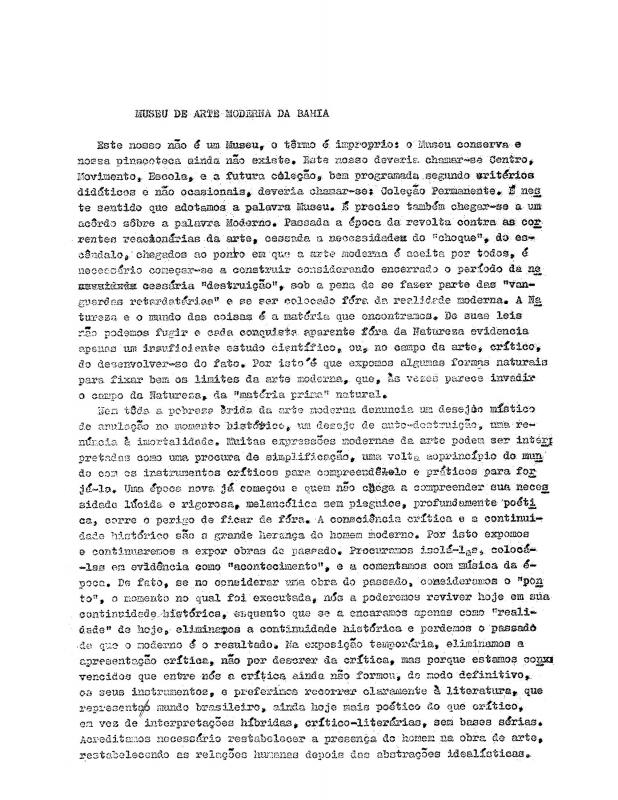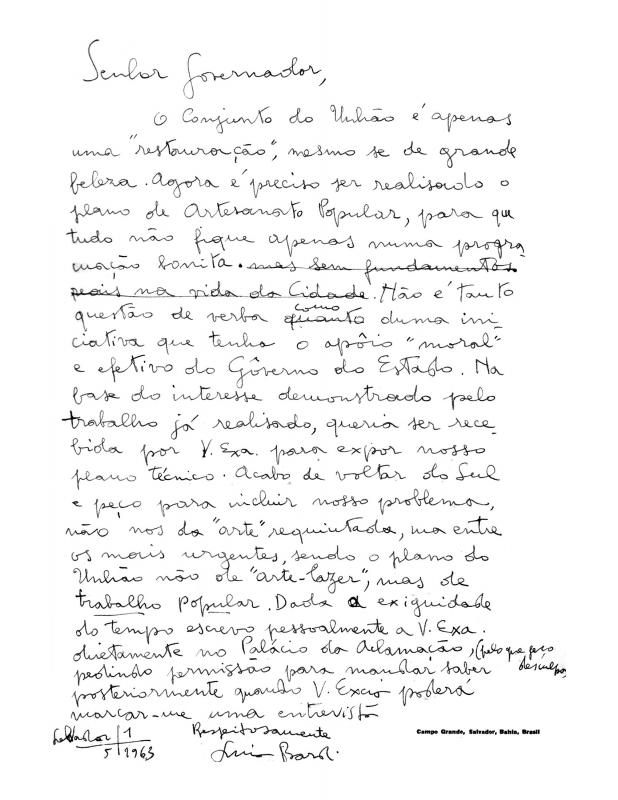It is highly likely that this text was written by the Italian architect Lina Bo Bardi (née Achillina Bo, 1914–92), who was the director of the Museu de Arte Moderna da Bahia (MAMB) at the time. She lived in Salvador, Bahia, from 1959 to 1964, the years that she directed MAMB. Her work as the head of programming and education at the Museu de Arte de São Paulo (MASP), and later as the director of MAMB, demonstrate her commitment to art historical exhibitions. She was also responsible for organizing exhibitions with a wide range of contemporary artists from Brazil and elsewhere, and for efforts that placed emphasis on popular culture from northeastern Brazil. Bo Bardi advocated organizing courses in art, music, cinema, and theater, and workshops in industrial design and crafts. Her work energized the art scene from this region of Brazil and allowed local artists to come into contact with major figures in contemporary art. In 1963, the Museu de Arte Popular was opened with works from different regions of the country.
Bo Bardi’s work advocating popular art had a social bent insofar as she believed that encouraging “nordestina” crafts was a means of stimulating the region’s economic development. This document then outlines her efforts to forge relationships between the MAMB and public entities and universities (in this case, the UFBa) in order to consolidate and expand the educational and social efforts of the museum.
For related texts, see Lina Bo Bardi’s “O Museu de Arte Moderna da Bahia” [doc. no. 1110860]; and on the implementation of the Plano de Artesanato Popular “[Letter] 1963 maio 1, Salvador, Bahia [to] Lomanto Júnior, Governo do Estado da Bahia” [doc. no. 1110865].
For additional information, see Glauber Rocha’s “MAMB Não é Museu: é Escola e Movimento. Por uma Arte Que Não Seja Desligada do Homem” (September 21, 1960).


